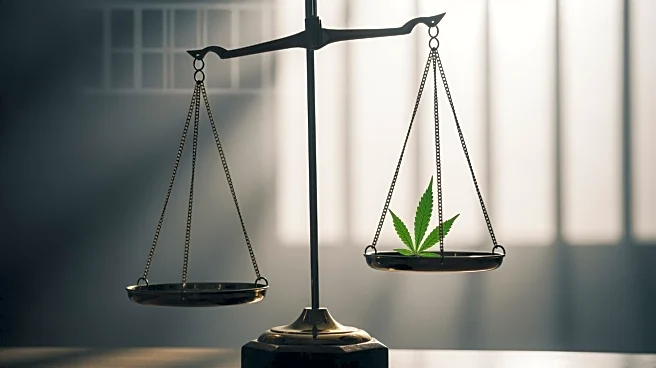What's Happening?
The Trump administration is advocating for the Supreme Court to allow a Rastafarian inmate to sue Louisiana prison officials for shaving his head, which violated his religious beliefs. This case, Landor v. Louisiana Department of Corrections and Public
Safety, questions whether the Religious Land Use and Institutionalized Persons Act (RLUIPA) permits inmates to seek monetary damages from state officials for infringing on their religious rights. The administration's stance marks a departure from its position in a similar case five years ago. The Supreme Court previously ruled that the Religious Freedom and Restoration Act (RFRA) allows damages suits against federal officials, but lower courts have not extended this to state officials under RLUIPA. The Trump administration argues that there is no valid reason to treat RFRA and RLUIPA differently, urging the court to apply the same logic to state officials.
Why It's Important?
This case is significant as it tests the extent to which religious protections can be extended by the Supreme Court's conservative majority, especially when these protections conflict with constitutional limits on Congress's power. The outcome could set a precedent for how religious rights are protected within the prison system and potentially influence broader interpretations of religious liberty laws. The administration's support for the inmate aligns with its political agenda, appealing to religious liberty claims that resonate with President Trump's base. The case has garnered support from various religious groups, indicating its wide-reaching implications across theological and political spectrums.
What's Next?
The Supreme Court's decision will need to reconcile its previous ruling in Tanzin v. Tanvir with the 2011 Sossamon v. Texas decision, which held that states cannot be sued for money damages under RLUIPA. The court's ruling could redefine the scope of Congress's power to impose conditions on federal funding, affecting state officials who do not directly receive such funds. The case will test the conservative majority's willingness to extend religious protections while balancing traditional concerns about limits on the Spending Clause.
Beyond the Headlines
The case highlights the complex interplay between religious liberty and federalism, raising questions about the balance of power between federal and state authorities. It also underscores the political dimensions of legal interpretations, as the administration's shift in stance may reflect strategic considerations to bolster support among religious constituencies.















